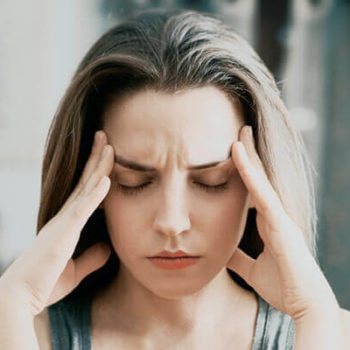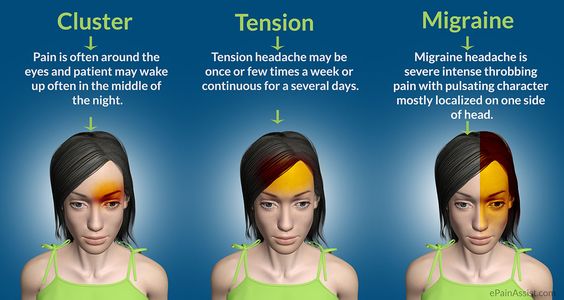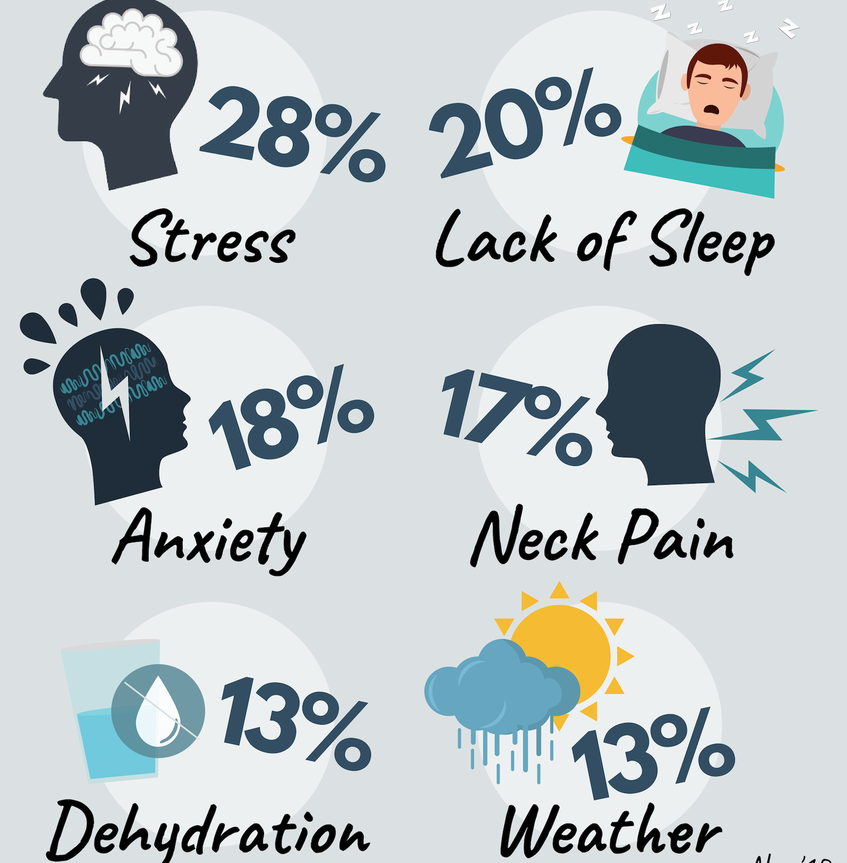Headache
Headache is a very common condition that causes pain and discomfort in the head, scalp, or neck. It is estimated that 7 out of 10 people have at least one headache each year. Headaches can sometimes be mild but they can also lead to severe pain which can hinder with daily activities and difficulty to concentrate at work.

Contributory Factors
- For Tension type headache (TTH): Stress, Sleep deprivation, bad posture, Irregular meal time (hunger), Eyestrain.
- For Migraine: stress, hunger/skipped meals, fatigue, certain foods (fermented and pickled food, cheese, banana, avocado, citrus), environmental factors, fluctuating hormone levels (puberty, menstruation, menarche, OCPs, perimenopause), alcohol consumption
- Cluster headache is generally not associated with triggers such as food, stress or hormonal changes but may be associated with drinking alcohol or use of certain drugs like nitroglycerin (drug used for heart disease).


Causes
Primary headaches:
- Headaches that are not related to separate medical conditions, but are the result of underlying processes in the brain.
- Accounts for 90% headache cases, affecting 20-40 yrs of age.
- Types: Migraine, Tension type headache (TTH), Trigeminal Autonomic Cephalgias (TACs).
Secondary headaches:
- Due to trauma, injury, infection, vascular disorder, substance abuse, cranial neuropathies and facial pains attributed to disorder of neck, sinus or teeth
Treatment
TENSION TYPE HEADACHE
- Acute/abortive treatment-NSAIDS, PCM+Caffeine combinations
- Preventive therapy- tricyclic antidepressants.
- Other modalities- Relaxation, biofeedback, Botulinum injection in muscles.
MIGRAINE
- Acute/abortive treatment-Triptans(Sumatriptan, zolmitriptan), Ergot derivatives, NSAIDS.
- Preventive therapy-Beta blocker- propranolol, CCB- Verapamil, TCA- amitriptyline, Anticonvulsant- valproate & topiramate
- Non-pharmacological-Lifestyle adjustments and trigger avoidance, coping and relaxation techniques.
CLUSTER HEADACHE
- Acute/abortive treatment-Oxygen inhalation, Triptans, Ergot derivatives, NSAIDS.
- Preventive therapy-Corticosteroids, CCBs : verapamil, Lithium carbonate, Sodium valproate, Indomethacin
- Non-pharmacological-Lifestyle adjustments and trigger avoidance, coping and relaxation techniques
Types of Pain
- Neck Pain
- Low Back Pain
- Thoracic Spine Pain
- Headache
- Shoulder Pain
- Elbow Pain
- Wrist Pain
- Knee Pain
- Peripheral Vascular Disease
- Neuropathic Pain Syndromes
- Fibromyalgia And Other Myofacial Pain Syndromes
- Chronic Regional Pain Syndrome
- Facial Pain
- Foot Pain
- Abdominal Wall Pain Syndrome
- Sacroiliac Joint Pain
- Cancer Pain
- Urogenital Pain Syndrome
- Chronic Pelvic Pain